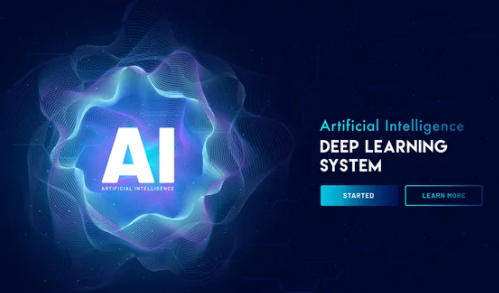Artificial Intelligence (AI) is rapidly reshaping the manufacturing landscape worldwide, and Europe is at the forefront of this technological revolution. Through the integration of AI-driven technologies, European manufacturers are gaining a distinct competitive edge—boosting productivity, enhancing quality, and fostering innovation. As global markets become increasingly competitive and complex, AI-powered manufacturing is emerging as the cornerstone of Europe’s industrial strategy.
This article explores how AI is transforming manufacturing across Europe, highlights the key technologies and benefits, and outlines the strategic steps that businesses and governments are taking to maintain and expand Europe’s leadership in this vital sector.
The AI Advantage in European Manufacturing
AI enhances manufacturing processes by enabling automation, real-time decision-making, and adaptive production systems. European manufacturers are harnessing AI to achieve:
- Greater Operational Efficiency: AI-powered robotics and automation reduce errors and accelerate production cycles.
- Improved Quality Control: Machine vision systems detect defects with precision unattainable by human inspection.
- Predictive Maintenance: AI algorithms analyze sensor data to predict equipment failures before they occur, minimizing downtime.
- Supply Chain Optimization: AI improves demand forecasting, inventory management, and logistics, making supply chains more agile and resilient.
- Customized Production: AI facilitates flexible manufacturing systems capable of producing personalized products at scale.
By integrating these capabilities, European manufacturers can reduce costs, speed time-to-market, and respond more effectively to customer needs.
Key AI Technologies Powering Manufacturing
1. Machine Learning and Data Analytics
AI systems learn from vast amounts of data generated by sensors, machines, and production lines to optimize workflows and identify inefficiencies.
2. Computer Vision
AI-powered visual inspection systems monitor product quality, detect anomalies, and ensure compliance with strict industry standards.
3. Robotics and Autonomous Systems
Intelligent robots perform complex tasks with speed and precision, often collaborating safely alongside human workers (cobots).
4. Natural Language Processing (NLP)
NLP-based AI assistants support operators by interpreting commands and providing real-time information for troubleshooting and decision-making.
Europe’s Manufacturing Sectors Leading AI Adoption
Automotive Industry
Germany, France, and Spain are leveraging AI to optimize vehicle assembly lines, enhance safety testing, and improve supply chain logistics.
Aerospace and Defense
AI supports precision manufacturing, predictive maintenance of aircraft components, and simulation-based design.
Electronics and High-Tech
Countries like Finland and the Netherlands use AI for rapid prototyping, quality assurance, and supply chain risk management.
Pharmaceuticals and Chemicals
AI accelerates drug formulation, monitors production quality, and manages complex supply networks.
Economic and Strategic Benefits of AI-Powered Manufacturing in Europe
Boosting Competitiveness
AI enables European manufacturers to compete globally by increasing productivity and fostering innovation. The ability to customize products and adapt quickly to market changes is a significant advantage.
Enhancing Sustainability
AI-driven manufacturing reduces waste, optimizes energy use, and supports circular economy initiatives, helping Europe meet its climate and environmental goals.
Creating High-Value Jobs
While AI automates repetitive tasks, it also creates demand for skilled professionals in AI development, data science, and advanced manufacturing technologies.
Overcoming Challenges: The Path to Widespread AI Adoption
Despite the promising benefits, European manufacturers face obstacles in fully harnessing AI:
- Investment Costs: High upfront costs can deter small and medium enterprises (SMEs) from adopting AI.
- Skills Shortage: There is a significant gap in AI and digital skills among the manufacturing workforce.
- Data Integration: Legacy systems and data silos complicate AI implementation.
- Cybersecurity Concerns: Increased connectivity heightens risks of cyberattacks.
Europe is addressing these challenges through targeted funding, skills development programs, and initiatives to modernize industrial infrastructure.
European Initiatives Driving AI Manufacturing Leadership
Horizon Europe and Digital Innovation Hubs
These programs provide funding, expertise, and facilities to help manufacturers adopt AI and other advanced technologies.
GAIA-X Cloud Infrastructure
Europe’s GAIA-X initiative supports secure and sovereign cloud services, essential for AI data processing and storage.
AI Skills and Education Programs
Investments in training and reskilling ensure the workforce can effectively collaborate with AI systems.
The Future Outlook: Sustaining Europe’s Edge with AI
The integration of AI into manufacturing is accelerating rapidly. European manufacturers that invest strategically in AI technologies, talent, and infrastructure will sustain their competitive advantage in the global marketplace.
Continued collaboration between industry, academia, and policymakers is essential to foster innovation, address challenges, and scale AI adoption across all manufacturing sectors—large enterprises and SMEs alike.
By doing so, Europe will secure not only industrial growth but also economic resilience, sustainability, and technological sovereignty in the decades ahead.
Conclusion: AI as the Catalyst for Europe’s Manufacturing Renaissance
Artificial Intelligence is transforming Europe’s manufacturing sector from traditional industrial production into a dynamic, intelligent ecosystem. With AI’s power to enhance efficiency, quality, and innovation, Europe is well-positioned to lead the global manufacturing landscape.
The future belongs to those who can combine human ingenuity with AI-driven capabilities. By embracing AI wholeheartedly, Europe will continue to build a competitive, sustainable, and innovative manufacturing industry that fuels prosperity across the continent.
Keywords used: AI manufacturing Europe, AI-powered manufacturing, Industry 4.0 Europe, predictive maintenance AI, smart factories EU, AI robotics manufacturing, AI skills Europe, European manufacturing innovation, digital transformation manufacturing, AI supply chain optimization.
Also Read :
